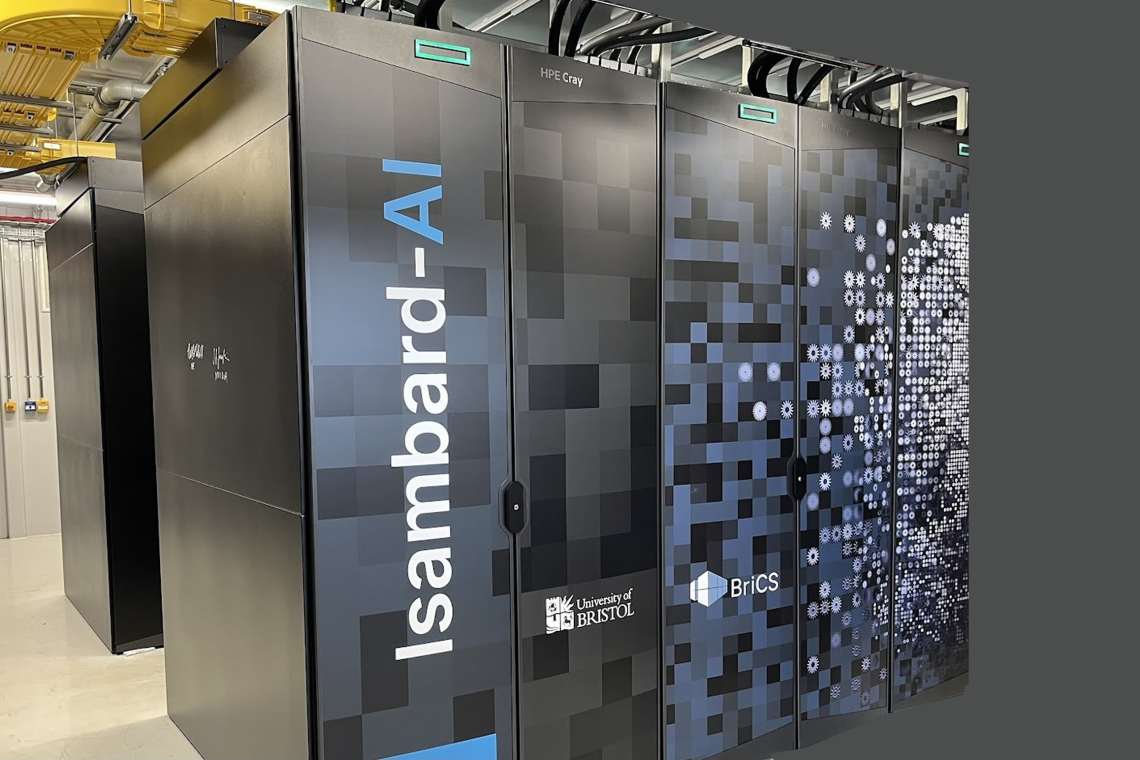The UK’s most powerful supercomputer has officially become fully operational in Bristol. Technology Secretary Peter Kyle activated the Isambard-AI system as the government introduced new artificial intelligence initiatives. Isambard-AI will now contribute to the UK's public AI computing network, alongside a similar machine in Cambridge named Dawn. This supercomputer will support public sector projects, including efforts to reduce NHS waiting times and create new tools to address climate change, despite AI’s high energy consumption. The government also revealed plans to direct billions in investment toward AI Growth Zones in Scotland and Wales.
Although part of Isambard-AI had been used earlier this year for a vaccine development project, the entire system is now active. Supercomputers, like Isambard-AI, are much more powerful than standard systems. While they process data in binary like regular computers, they use thousands of processors to handle far more data at significantly higher speeds. Together with Dawn, Isambard-AI will make up the UK’s “AI Research Resource,” supporting public projects. However, the two machines will operate independently. The government plans to expand this resource by 20 times over the next five years.
In an interview with the BBC’s Faisal Islam, Kyle said AI offers incredible potential, particularly in areas like disease treatment. He also acknowledged it would transform workplaces, emphasizing the need for preparation. The UK is training one million students in AI and aims to equip 7.5 million people across the broader economy with relevant skills in the near future. Kyle admitted that some people may feel uncertain about AI’s impact on jobs but stressed that the UK is already seeing major gains in productivity. “AI is coming to Britain,” he said. “What we can decide is the way it unfolds here.”
Isambard-AI runs on more than 5,400 Nvidia GH200 Grace Hopper Superchips and incorporates Hewlett-Packard technology. Dawn, based at the University of Cambridge, uses over 1,000 Intel chips and Dell infrastructure. The University of Bristol built Isambard-AI using government funding. David Hogan, Nvidia’s European vice president, described it as a “truly transformational machine” and said it represents just the beginning. To shape its national AI strategy, the government has brought together researchers, academics, and tech industry leaders. The strategy is expected to be published in the autumn.
This advisory group includes figures such as Google DeepMind’s Pushmeet Kohli, the Royal Society’s vice president Alison Noble, and Engineering and Physical Sciences Research Council chair Charlotte Deane. The UK government believes expanding supercomputing capacity will fuel national growth and help establish Britain as a creator of AI technologies rather than a passive consumer. Globally, companies are racing to secure top talent and advanced hardware to maintain leadership in the AI sector. The Bristol-based Isambard-AI recently ranked 11th on the list of the world’s 500 most powerful commercial computers.
Found this article interesting? Follow us on X(Twitter) ,Threads and FaceBook to read more exclusive content we post.



